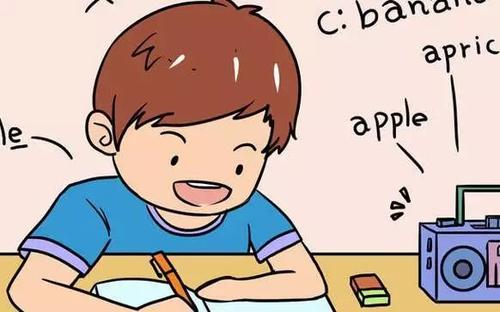初二年级英语期末上册学习要点五篇
好官为国为民以己任,群众利益铭记心;贪官为名为利以追求,夜朗自大傲视人。下面是课件网小编为您推荐初二年级英语期末上册学习要点五篇。

1.初二英语期末上册要点
形容词/副词的比较级和级
1. 形容词/副词的比较级和级的构成规则
(1)单音节词和少数以-er,-ow结尾的双音节单词,比较级在后面加-er,级在后面加-est。
① 单音节单词
small→smaller→smallest
short→shorter→shortest
tall→taller→tallest
great→greater→greatest
② 少数以-er,-ow结尾的双音节单词
clever→cleverer→cleverest
narrow→narrower→narrowest
(2)以不发音e结尾的单音节单词,比较级在原形后加-r,级在原级后加-st。
large→larger→largest
nice→nicer→nicest
able→abler→ablest
(3)以一个辅音字母结尾的闭音节(即:辅音+元音+辅音)单词中,先双写末尾的辅音字母,比较级加-er,级加-est。
big→bigger→biggest
hot→hotter→hottest
fat→fatter→fattest
(4)以“辅音字母+y”结尾的双音节词, 把y改为i,比较级加-er,级加-est。
easy→easier→easiest
heavy→heavier→heaviest
busy→busier→busiest
happy→happier→happiest
(5)其他双音节词和多音节词,比较级在前面加more,级在前面加most。
beautiful→more beautiful→most beautiful
different→more different→most different
easily→more easily→most easily
(6)有少数形容词、副词的比较级和级是不规则的,必须熟记。
good→better→best
well→better→best
bad→worse→worst
ill→worse→worst
old→older/elder→oldest/eldest
many/much→more→most
little→less→least
far →further/farther→ furthest/farthest
2. 形容词和副词比较级的用法
(1)“甲+be+(倍数)+形容词比较级+than+乙”表示“甲比乙…”或“甲比乙…几倍”。
Tom is taller than Kate.
汤姆比凯特高。
This room is three times bigger than that one.
这个房间比那个大三倍。
(2)“甲+实意动词+(倍数)+副词比较级+than+乙”表示“甲比乙…”或“甲比乙…几倍”。
I got up earlier than my mother this morning.
我今天早晨起床比我妈妈还早。
He runs three times faster than his brother.
他跑的速度比他弟弟快三倍。
3. 形容词和副词级的用法
(1)“主语+be+the+形容词级(+单数名词)+in/of...”表示“……是……中最……的”。
Tom is the tallest in his class./of all the students.
汤姆是他们班上/所有学生当中的。
This apple is the biggest of the five.
这个苹果是五个当中的。
(2)“主语+实意动词+(the)+副词级+in/of...”表示“……是……中最……的”。
I jump (the) farthest in my class.
我是我们班跳得最远的。
2.初二英语期末上册要点
Unit 1 Where did you go on vacation?
一、词形变化
wonder(v)----wonderful(adj) different(adj)----difference(n )
like(v) ---dislike(v) boring(adj)---bored (adj)
build(v)---building(n) wait(v)---waiter(n)
active(adj)---activity(n)
二、短语
1.呆在家 stay at home
2. 拜访我的叔叔visit my uncle
3 .去夏令营 go to summer camp
4 .去爬山 go to the mountains
5.去度假go on vacation
6 .买特别的东西 buy something special
7 .和某人去 go with someone
8.遇见某个有趣的人meet someone interesting
9.为测试而学习study for tests
10.某个有趣的地方somewhere interesting
3.初二英语期末上册要点
1 、take a photo/ take photos拍照
quite a few+名词复数“许多..”
2、seeng[形容词看起来-.. You seem happy today.
to do sth.似乎、好像做某事
I seem to have a cold
It seems +从句似-. It seems that no one believe you.
seem like -.好像,似乎... It seems like a good idea,
3、 { arive in +大地点,= gtto= reach+地点名“到达..
arrive at +小地点
(注:若后跟地点副词here/therehome,介词需省略,如: arive here; get home)
4. feel like sth/ doing sth.感觉像是...
5. wonder“想知道”,+疑问词(who, what, why)引导的从句。
because of +名/代/-ing
Because+从句,表示直接明确的原因或理由。
He can’t take a walk because of the rain.
1 don’t buy the shirt because it was too expensive.
7.enough +名词:“足够”
形容词/副词+enough
4.初二英语期末上册要点
1、如有always ,often, usually, sometimes, seldom, never, once a....,every...用一般现在时,第一、二人称复数后跟动词原形,第三人称单数后跟动词加s/es。
2、如有now ,look! ,listen, at the moment ....用现在进行时,结构是be (am, is, are) +v-ing
3、如有tomorrow, the day after tomorrow, from now on, in +一段时间, some day, next....用一般将来时,结构:will + v原 be going to +v原(没有动词用be )
4、如有yesterday, ......ago , last....just now.....用一般过去时动词加ed
give sb. Sth.=give sth. to sb. 给某人某物 every day每天,
write down 写下,记下write it (them) down everyday每天的,日常的,
how about doing sth.=what about doing sth.做....怎么样 each other 互相
thanks a lot= thank you very much非常谢谢
5.初二英语期末上册要点
Unit1 what' s the matter?
1. It’s +形容词 + for sb. + to do sth. 做某事对某人来说是…的。
It’s important to do sth. 做某事很重要。
It’s important for me to eat a balanced diet. 平衡饮食对我来说是很重要的.
It’s easy to do sth. 做某事是容易的。
It’s easy for us to find out the answer. 找出答案对我们来说是容易的。
2. 情态动词should的用法
should是情态动词,它的基本用法是必须和其他动词一起构成谓语。意为"应该......"。
should(应当,应该)用于所有人称,表示劝告或建议。
eg. ---I have a very bad cold. 我感冒很厉害。
---You should lie down and have a rest. 你应该躺下,多喝水。
3. maybe与may be
(1)maybe是副词,译为“也许、可能”,相当于“perhaps”。如:Maybe he can answer the question. 也许他能回答那个问题。
He maybe is from the USA, too. 他可能也来自美国。
(2)may be中的may为情态动词,译为“可能是......”。如:
He may be from the USA, too. 他可能也来自美国。
She may be our English teacher. 她可能是我们的英语老师。
4. few、a few、little、a little的区别和联系:
(1)few / a few用来修饰可数名词,few表示否定意义,没有,几乎没有;a few表示肯定意义, 有几个。例如:
He has few friends here, he feels lonely. 他这里没朋友,他感觉寂寞。
There are a few eggs in the basket. 篮子里有几个鸡蛋。
(2)little / a little用来修饰不可数名词,little表示否定意义,没有,几乎没有; a little 表示肯定意义,有一点儿。例如:
There is little ink in my bottle. Can you give me a little ink? 我的瓶子里没有墨水了,你能给我点儿墨水吗?
5. not…until 直到…(否定句) 才......,动词为短暂性或瞬间性动词。
She didn’t leave until we came.
He went shopping after he got up.
=He didn’t go shopping until /before he got up.
...until/till 直到......(肯定句)动词为延续性动词
We stayed here till/until 12 o’clock.
Unit2 I'll help clean the city parks.
1.短语动词小结
常见动词短语结构有下面几种:
(1)动词+副词 如:give up 放弃;turn off 关掉;stay up 熬夜
这种结构有时相当于及物动词,如果其宾语是代词,就必须放在动
词和副词之间,如果是名词,则既可插在动词和副词之间,也可放
在短语动词后。
(2)动词+介词 如:listen of 听;look at 看;belong to 属于
这种结构相当于及物动词,后面跟宾语。
(3)动词+副词+介词 如:come up with 提出,想出; run out of 用完,耗尽
(4)动词+名词+介词 如:take part in参加;catch hold of 抓住
2. each 每个,各自的,强调事物的个别情况,常与of 连用
every 每个,每一个的,一切的,有“全体”的意思不能与of 连用
3. help sb. (to) do 帮助某人做某事 help him (to) study
help sb. with sth. 帮助某人做某事 help him with English
help do 帮助做某事 help study
4. spend...doing... 花费…做…
I spent a day visiting Beijing. 我花了一天的时间去参观北京。
spend… on sth. 花费…在… I spent 3 years on English.
5. join 参加 (指参加团体、组织) 如:join the Party 入党
take part in 参加 (指参加活动) 如:take part in sports meeting 参加运动会
6. run out 与 run out of
(1)run out (become used up). 其主语往往为物。如时间,食物,金钱,油等,本身就含有被动意义。
His money soon ran out. 他的钱很快就花光了。
Our time is running out. 我们剩下的时间不多了。
(2)run out of 主语为人,表示主动含义。
He is always running out of money before pay day. 他总是在发工资的日子还没有到就把钱花完了。
两者在一定条件下可以互换
如:The petrol is running out. 汽油快用完了= We are running out of petrol.
Our time is running out. 我们剩下的时间不多了。= We are running out of time.
7. work out
(1)结局,结果为
The strategies that he came up with worked out fine. 他提出的这个策略效果很好。
(2)算出,制订出,消耗完(精力等)
He never seems to be worked out. 他好像永远不会疲乏似的。
He worked out a plan. 他制订了一个计划。
I have worked out our total expenses. 我已经算出了我们总的费用。
8. hang out 闲荡 闲逛
I like to hang out at mall with my friends. 我喜欢和我的朋友一起去购物中心闲荡。
9. be able to do 能,会
be unable to do 不能,不会
10. for sure 确实如此,毫无疑问
You don’t have money. That’s for sure. 你没有钱,这是毫无疑问的。



